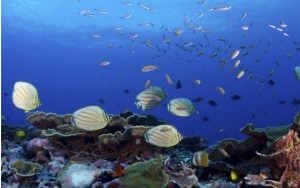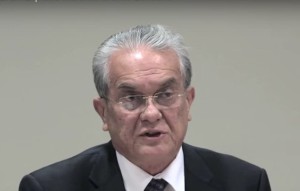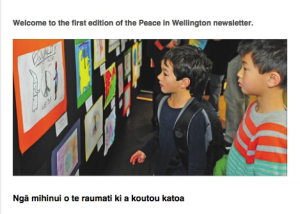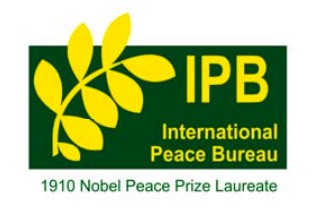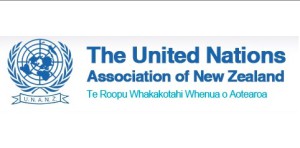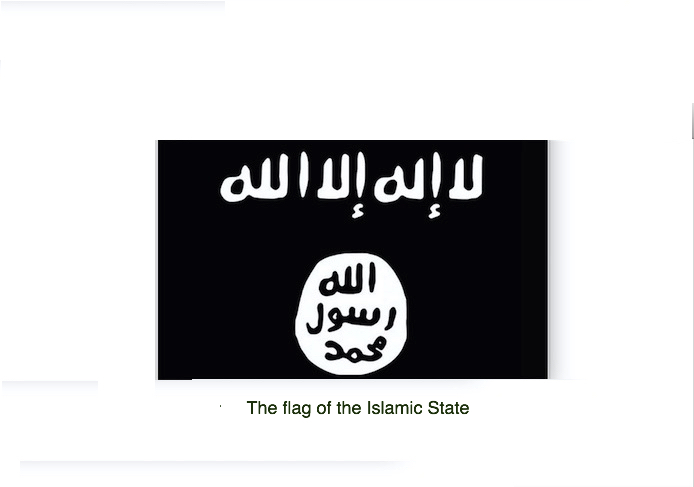. . SUSTAINABLE DEVELOPMENT . .
A blog by Molly Bergen, Conservation International
In honor of International Women’s Day (March 8), Human Nature is spotlighting “conservation heroines” around the globe. In this piece, we meet Nolsita Siyang, an indigenous farmer and mother of 10 who also finds time to patrol her community’s ancestral home as a forest ranger.
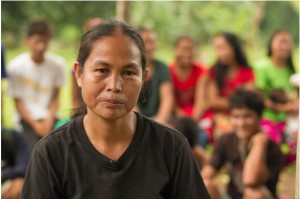
Nolsita Siyang, a forest ranger who regularly patrols the protected area surrounding her village on the island of Palawan, Philippines. (© Conservation International/photo by Tim Noviello)
Nolsita Siyang has not had an easy life. A member of the Palawan indigenous group on the southern end of the Philippine island of the same name, she has spent most of her nearly five decades farming a small plot of land on the slopes of the Mount Mantalingahan mountain range.
Siyang lives in Raang, a mist-shrouded, thatch-roofed village accessible only by a winding footpath that becomes a river of mud during the rainy season.
About 10 years ago, her husband, Federico, had a stroke, leaving him mostly incapacitated. Now the family relies primarily on the income she brings in. Each week, Siyang — usually accompanied by several of her 10 children — trudges several kilometers down the footpath from her village to the market in the lowlands, carrying surplus corn, peanuts and other wares on her back in hopes of making a sale.
Between caring for her land, making trips to the market and looking after her family, Siyang doesn’t have a lot of spare time, yet she chooses to spend it volunteering as a forest ranger, patrolling the protected area surrounding her village.
(Article continued in right column)
Questions for this article
Indigenous peoples, Are they the true guardians of nature?
(Article continued from left column)
Why does she do this? Siyang’s community is linked to the land by tradition, spirituality and survival. If the land isn’t protected, life as she knows it will cease to exist. Together with her only daughter, she is proving that women play a vital role in securing their community’s future.
The Palawan people are believed to be the descendants of the first settlers of the island, who may have arrived more than 50,000 years ago. Even today, the island’s sparse, pot-holed roads and lush greenery feel far removed from the air-conditioned shopping malls and urban sprawl that characterizes much of modern Philippines.
Most of the 12,000 or so people who identify as Palawan live in small villages around Mount Mantalingahan, the highest peak on the island and considered sacred by locals. In Siyang’s words: “The forest is our home, and has a direct connection to our daily lives.”
Palawan people observe a traditional boundary system called bertas, which identifies sacred sites based on myths passed down by their ancestors. These areas are left undisturbed based on the belief that the nature they contain has unseen guardians. These parcels of forest are interspersed with areas where indigenous people regularly hunt, grow crops and gather forest products, from wild vegetables to medicinal plants to reeds used for weaving intricate Palawan baskets.
Recognizing the need to conserve this vital place, Palawan communities were instrumental in establishing the Mount Mantalingahan Protected Landscape (MMPL) around their villages in 2009. The park covers more than 120,000 hectares (almost 300,000 acres), and is jointly managed by a protected area management board composed of representatives from local and national government, NGOs (including Conservation International), religious groups and the indigenous community.
(Thank you to Janet Hudgins, the CPNN reporter for this article)
